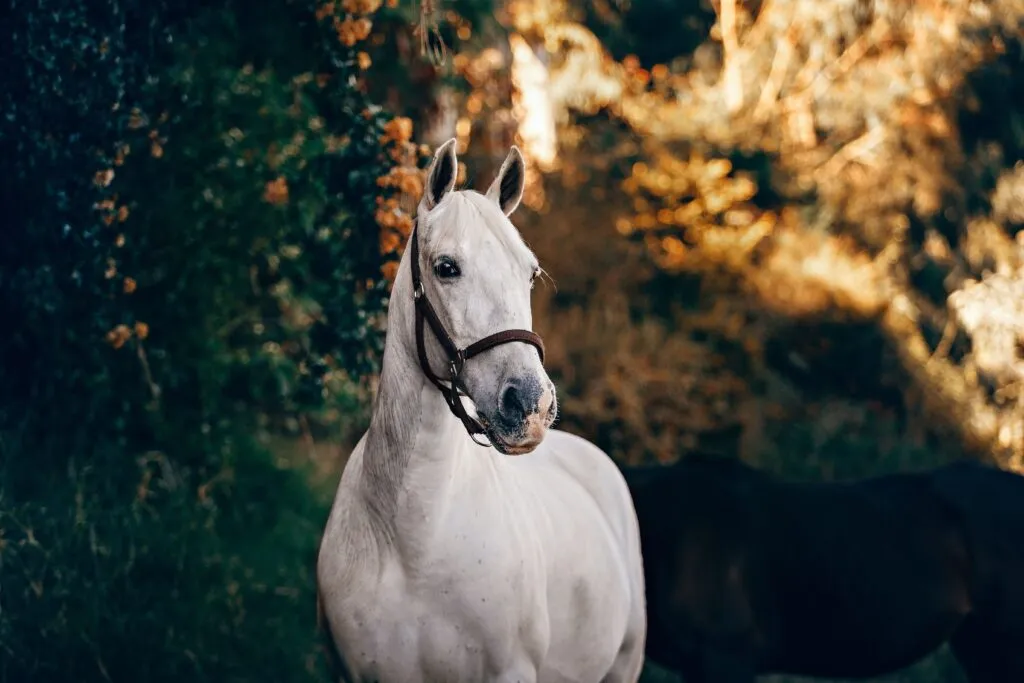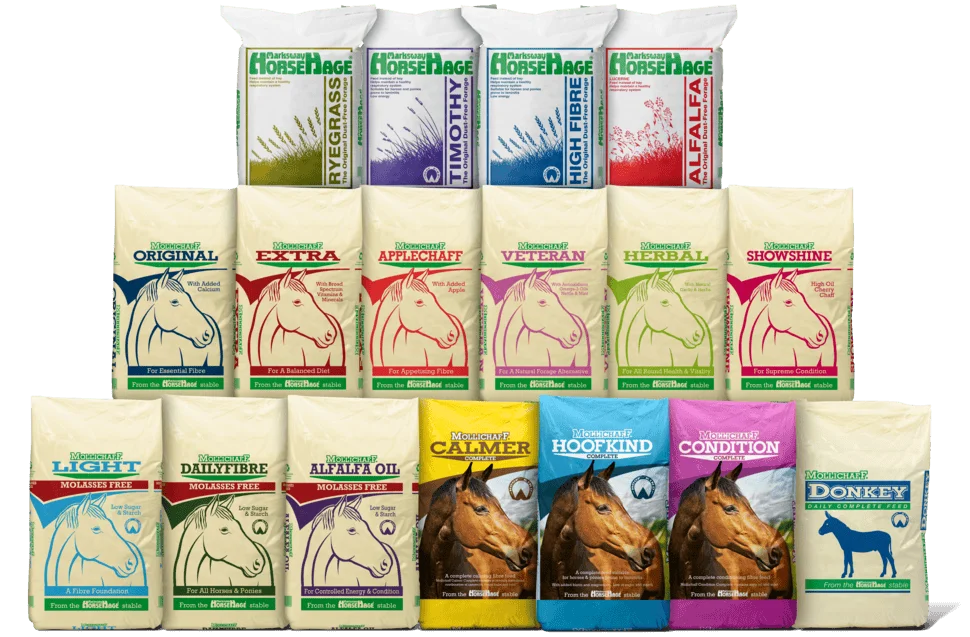
Simply put, chaffs are dried forage cut into small pieces and can be made from chopped hay, alfalfa, dried grass or straw.
Nowadays, there is a huge range chaff mixes and chaff for horses available, some with added flavours such as apple, garlic and herbs and others may have added minerals and vitamins. In order to reduce dust and increase palatability, mixers including molasses, oil, wheat or corn syrup are used as well.
With so many options available for your horses and ponies, you may be wondering why you should be feeding chaffs? Just like all the different types of chaff, there are a lot of different benefits to feeding chaffs.
Why Should I Feed My Horse Chaffs?
Digestive Benefits
Chaffs are considered as a high fibre feed which is incredibly important for a horse’s digestive system and immune function. As horses are predominantly fibre digesters or hindgut fermenters, fibre is not just a ‘filler’, it is vital for their energy levels.
Millions of microbes (collectively called the microbiota, and all the genetic material within the gut is known as the microbiome) break down the digestible fibre content from chaffs which, in turn, release energy that the horse then uses. If the balance of microbes in the gut is upset due to a lack of fibre, this may lead to serious health problems including colic, laminitis, and suppression of the horse’s immune status.
Psychological Benefits
In addition to bulking out the concentrate feed, chaffs have psychological benefits for horses. As chaff prolongs a horse’s feeding time; since he needs to chew chaffs for longer than other concentrate feeds, it aids in fulfilling your horses psychological need to chew.
Physiological Benefits
With the addition of chaffs in their concentrate feed, horses will produce a higher level of saliva. A high fibre feed like chaff helps to increase the production of acid-buffering saliva.
Feeding a scoop of chaff before exercise may also help to reduce the splash effect of the horse’s stomach acid by providing a fibrous “mat” in the stomach.
What About Molasses?
Many horse owners have concerns about molasses and other sugar-based syrups that are often added to chaff – and although there are certain types of horses and ponies with insulin dysregulation who do need careful management of their sugar intake, such as those diagnosed with PPID (Cushings) or EMS (Equine Metabolic Syndrome), many horses and ponies can safely be fed controlled quantities of molassed chaff in a well-balanced diet.
Molasses is a by-product of the sugar extraction process from sugar cane or beet and is added to chaff mixes to reduce dust and increase palatability. Sugar is an essential energy source for horses; they have evolved to eat grass, so they are in fact well adapted to including sugar in their diet as long as it is trickle-fed – as chaffs are.
The natural nutrients contained in molasses are also beneficial to a horse’s diet, such as potassium, iron, calcium, salt and B vitamins. As long as the horses’ own natural ability to digest sugar in the small intestine is not overwhelmed, molassed chaffs can be safely fed to many horses and ponies as part of a balanced diet.
What Chaffs Should I Feed My Horse?
The type of chaff you should feed your horse completely depends upon your individual horse’s requirements.
There are a number of different types of chaffs to choose from, including high energy chaffs for youngstock and hardworking horses, low energy chaffs for overweight or horses in light work, and low sugar chaffs for horses prone to laminitis or with insulin dysregulation.
For more information on feeding your horse or pony, please contact the HorseHage Helpline on 01803 527274 or have a browse of our HorseHage and Mollichaff products today.


